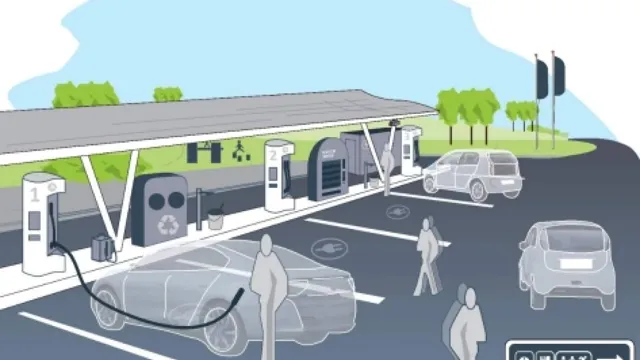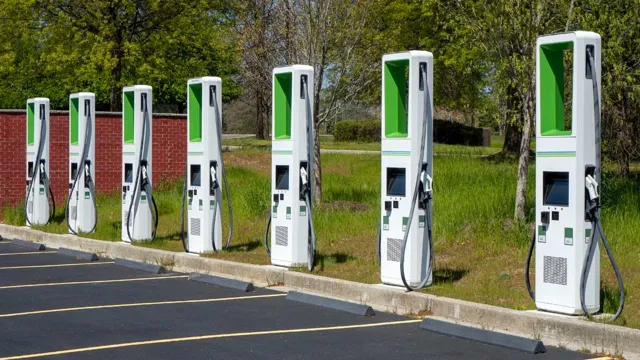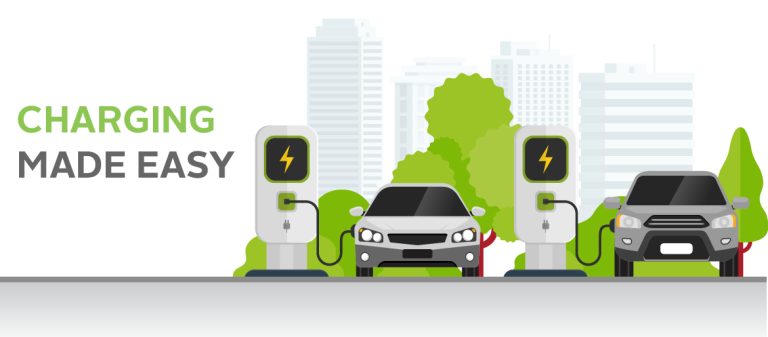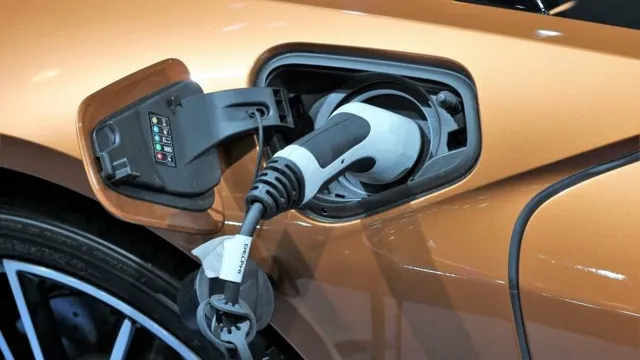Revolutionizing Transportation: Government Unveils Guidelines for Electric Car Charging Infrastructure
Electric cars are becoming increasingly popular, and as more drivers make the switch to sustainable transportation, reliable charging infrastructure becomes all the more important. The good news is that on the 21st of June, new electric car charging guidelines were released by the British Standard Institute (BSI), aiming to ensure that EV charging is safer and more accessible than ever before. These new guidelines cover a range of topics, including safety, reliability, accessibility, and compatibility.
The standards set out how EV charging points should be installed, what safety features they need to have, and how they should be maintained. One key aspect of the guidelines is that they specify what types of chargers should be used for different situations, such as home charging, workplace charging, and public charging. They also address the issue of interoperability, ensuring that EV drivers can use any charging point, regardless of who owns it or where it is located.
Overall, these new electric car charging guidelines are an important step forward in making EV charging safer and more accessible for everyone. As the UK government works towards its goal of banning the sale of new petrol and diesel cars by 2030, it is crucial that EV charging infrastructure is able to keep up with demand. The new BSI guidelines should help to ensure that this is the case, paving the way for an electric future.
Government Announcement
It’s great news for electric vehicle owners and enthusiasts alike as the government has newly announced guidelines and plans for electric car charging infrastructure. This move marks an exciting milestone in the UK’s commitment to net-zero carbon emissions. The plan is to ensure that the UK’s charging network keeps pace with the anticipated increase in electric car ownership, while also making it easier for drivers to access charging points.
Amongst other things, the regulations will require newly built homes to have charging infrastructure installed as standard, and improvements to urban street lighting so that charging points can be more accessible and safe. Such initiatives are designed to encourage both the private and public sector to invest in electric vehicle infrastructure, whilst giving the general public greater confidence that they will be able to recharge their vehicles quickly and conveniently. Overall, these guidelines are a significant milestone for the electric vehicle industry and should provide a major boost to both the public and private sectors.
Details of Charging Infrastructure
Recently, the Indian government announced plans to expand the country’s electric vehicle (EV) charging infrastructure. The initiative aims to increase the number of charging stations, making them more accessible to EV owners. This decision comes as part of India’s larger goal to reduce carbon emissions and promote the use of EVs.
The government plans to install over 2,500 EV charging stations across the country, with a focus on major cities and highways. Furthermore, the government plans to offer incentives to developers and communities who set up EV charging stations. This push towards a more robust charging infrastructure is welcome news for current and future EV owners in India, as it will alleviate range anxiety and make electric transportation a more practical and convenient option.
This move also offers a significant opportunity for businesses to invest in the development and maintenance of charging stations. Overall, this development is a step in the right direction towards a cleaner and greener India.
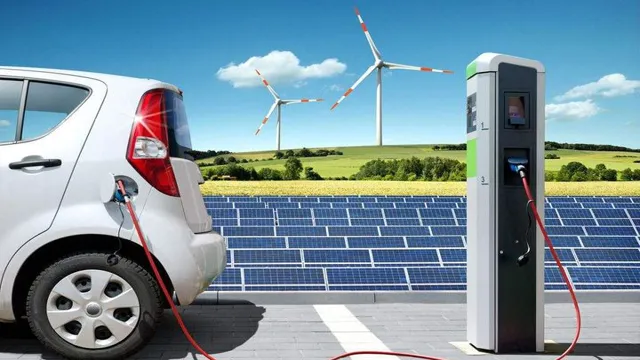
Benefits of Electric Car Usage
In a recent announcement, the government has highlighted the benefits of Electric Car Usage and urged people to switch to electric vehicles. Electric cars have become increasingly popular over the years due to their numerous advantages over traditional gasoline-powered vehicles. One of the main benefits of electric cars is that they are eco-friendly and emit fewer greenhouse gases, which helps to combat climate change.
Additionally, electric cars are highly efficient and cost-effective to run, as they require little to no maintenance and running costs are lower than traditional cars. Besides, electric cars are quiet and smooth, making the driving experience more pleasant. With government incentives like tax credits, rebates, and subsidies, it is now more affordable and accessible for people to make the switch to electric vehicles.
By choosing to drive an electric car, you not only help protect the environment but also enjoy long-term cost savings. It’s never been a better time to embrace this new wave of electric vehicles.
Charging Stations Availability
The Indian government has recently announced guidelines for the development of electric car charging infrastructure across the country, in a bid to encourage the adoption of electric vehicles. These guidelines mandate that public charging stations should be available within a radius of 25 kilometers on both sides of the highway, and every station should have at least one fast-charging option. In addition, the government has set up a target of setting up 69,000 charging stations by 2025, signifying the nation’s commitment to green energy and reducing carbon footprint.
The move is expected to boost EV adoption in the country, making it more convenient for drivers to drive long distances and not worry about running out of battery range. As more and more vehicles convert to electric energy, the need for proper charging infrastructure will become even more critical. The key to successfully implementing the guidelines will be to ensure that the infrastructure is maintained and upgraded to meet the increasing demand, and this will require close collaboration between the government and private sector players.
Ultimately, the success of the initiative will depend on how quickly and effectively the infrastructure can provide widespread access to charging stations, making it easier for people to switch to electric vehicles.
Location of Charging Stations
If you own an electric vehicle, finding a charging station en route to your destination can be a stressful experience. However, the availability of EV charging stations is increasing at a rapid pace. They can be found in public parking lots, shopping centers, workplaces, and gas stations.
Additionally, many online maps and phone apps can help you locate the nearest charging station with real-time availability updates. It’s important to note, though, that charging infrastructure can vary greatly depending on where you live or travel, and rural areas may have less available options. That being said, the trend is certainly heading in the right direction as governments and private companies continue to invest in expanding the charging network to meet the growing demand for electric vehicles.
So, don’t let the fear of finding a charging station hold you back from making the switch to an EV. With a little planning and research, you can enjoy a smooth and stress-free driving experience without relying on traditional fossil fuels.
Number of Charging Stations
When it comes to electric cars, one of the main concerns for drivers is the availability of charging stations. Luckily, with the rise in popularity of electric vehicles, the number of charging stations has also increased significantly. In fact, statistics show that there are now over 100,000 charging stations across the United States alone.
This means that drivers have more options than ever before when it comes to charging their cars on the go. However, it’s important to note that the number of charging stations in a particular area can still vary significantly, so it’s always a good idea to plan ahead before embarking on a long road trip. The rise in charging station availability is a testament to the growing popularity of electric vehicles and the efforts being made to make them a more viable option for drivers.
As the market for electric cars continues to grow, we can only expect to see even more charging stations in the future.
Charging Station Compatibility
When it comes to charging stations, compatibility can be a major concern for many electric vehicle owners. With the rise of different charging standards, it can be confusing to determine which stations will work with your specific car. However, the good news is that there are now many charging stations available that are compatible with multiple charging standards, making it easier for EV drivers to find a convenient place to charge their vehicles.
Some stations even offer both Level 2 and Level 3 charging, so you can get a faster charge when you need it. Overall, as the EV industry continues to grow and evolve, the availability of charging stations that are compatible with a variety of vehicles is likely to increase, making it easier than ever to hit the road with a charged-up battery.
Impact on Environment
The government’s recent announcement on electric car charging infrastructure and guidelines is a promising move towards a greener future. With this initiative, it’s clear that electric vehicles are here to stay and as more people switch to these cars, we need sufficient charging stations to cater to their needs. Electric car charging infrastructure will help curb the carbon footprint, as it provides a cleaner alternative to traditional petrol and diesel engines.
These guidelines aim to address concerns such as the location and design of charging stations, the types of chargers needed, and the sources of power supply. Additionally, the government has promised financial support to help set up these charging stations, which is an immense boost to the electric vehicle industry. The investment in green technology will result in more job opportunities, positively impacting the economy as a whole.
Ultimately, the introduction of electric car charging infrastructure will significantly reduce environmental damage, making a significant difference in the fight against climate change. With the rising popularity of electric vehicles, it’s crucial that we invest in this infrastructure for a cleaner and healthier future.
Reduction in Carbon Emissions
One of the most significant impacts of reducing carbon emissions is the positive effect it has on the environment. Carbon emissions contribute to global warming, which in turn leads to catastrophic events such as extreme weather patterns, melting ice caps, and rising sea levels. By reducing the number of carbon emissions we release into the atmosphere, we can slow down the impact of global warming and limit the damage it does to the environment.
This reduction can also help to improve the quality of air and water, which are essential to our daily lives. For example, industries can implement green technologies that reduce the amount of waste they produce and recycle waste materials to reduce their carbon footprint. Utilizing renewable energy sources such as solar, wind, and hydroelectric power can significantly reduce carbon emissions.
By making conscious decisions to reduce our carbon emissions, we can make a positive impact on the environment and reduce the negative effects of global warming.
Promotion of Green Energy
The promotion of green energy has a tremendous impact on the environment. As we become more aware of the damage we have inflicted on our planet, it is essential to shift towards cleaner and renewable sources of energy. By turning to wind, solar, and geothermal energy sources, we not only reduce carbon emissions but also prevent the pollution of our air and water.
The production of renewable energy does not emit greenhouse gases that are major contributors to climate change. Furthermore, unlike fossil fuels, it does not produce harmful byproducts that pollute the soil and water. Adopting green energy technologies also helps in reducing our dependence on non-renewable resources that are eventually going to run out.
By converting to green energy, we’re not only doing our part in preserving the environment, but we’re also securing a better future for generations to come.
Future of Electric Cars
The Indian Government has recently announced new guidelines and regulations for the development of electric car charging infrastructure in the country. The aim is to ensure that electric vehicle owners have access to a well-developed charging network that will make EV usage more convenient and efficient. The guidelines require the installation of at least one charging station within every 25 km on both sides of highways and roads to ensure that EV drivers can charge their vehicles on long road trips.
Additionally, charging stations must be equipped with standard charging equipment that is compatible with all electric cars sold in India. These new guidelines are a huge step forward for the Indian electric car industry and will pave the way for faster adoption of electric cars in the country. The announcement is expected to attract more investments into the electric vehicle segment, and will help create new job opportunities in the sector, especially for those with technical expertise in charging infrastructure.
Once implemented, this initiative will make electric cars a more viable and practical option for everyday commuters, and help India transition towards a greener and more sustainable future.
Conclusion
As the world continues to shift towards renewable energy sources and environmentally conscious solutions, it’s no surprise that electric cars are becoming more popular. But with this rise in electric cars comes a need for proper charging infrastructure. The government’s announcement of guidelines for electric car charging infrastructure shows a commitment to building a sustainable future.
Plus, with more charging options available, electric vehicle owners can hit the road with even more confidence. So let’s all charge forward, full speed ahead, towards a greener tomorrow!”
FAQs
What exactly is the government’s announcement on electric car charging infrastructure?
The government has announced guidelines and funding for the development of electric car charging infrastructure across the country.
What form will the funding for electric car charging infrastructure take?
The funding will be provided to local councils, businesses, and other organizations to install charging points for electric cars.
How many new charging points are expected to be installed as a result of the government’s announcement?
The government hopes that up to 6,000 new charging points could be installed by 2020 as a result of this initiative.
Is the announcement specific to any particular area of the country?
No, the announcement covers the entire UK, and the funding will be available for projects across England, Scotland, Wales, and Northern Ireland.
